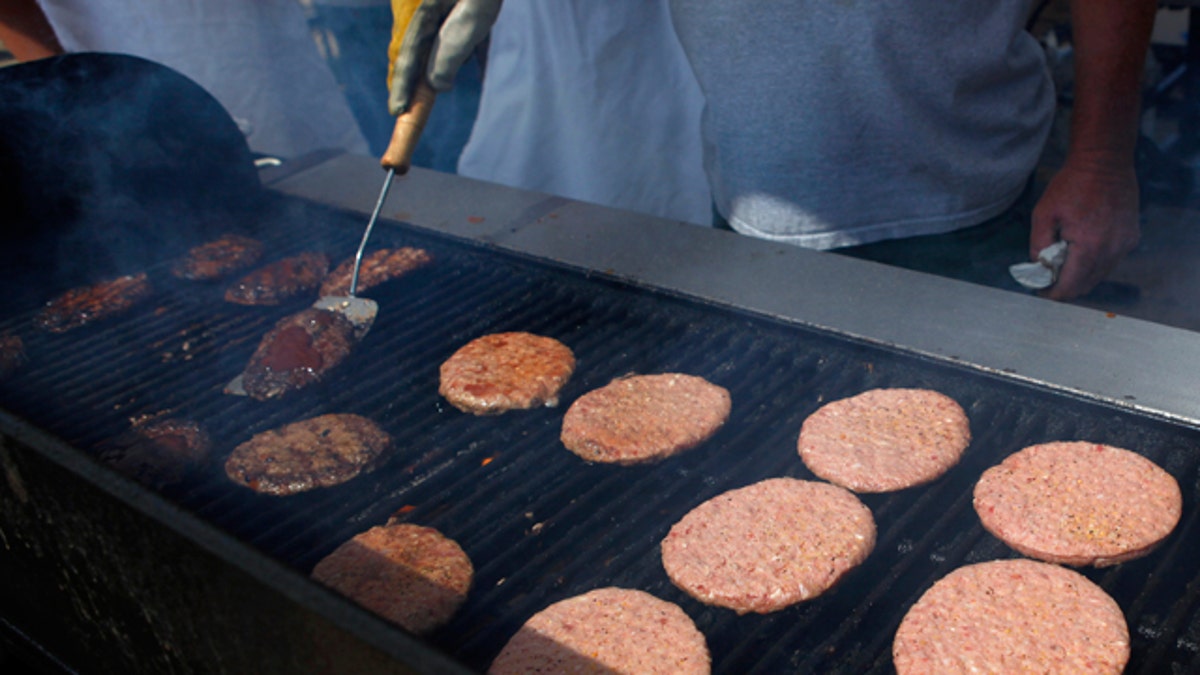
(Reuters)
A burnt burger can do more than turn your taste buds. It can produce cancer-causing chemicals, too. If you're firing up the grill, keep your cookout risk-free with these safe-cooking tips.
When meat—be it beef, pork, fish, or poultry—is cooked at high temperatures, it forms heterocyclic amines (HCAs) and polycyclic aromatic hydrocarbons (PAHs). According to the National Cancer Institute, HCAs and PCAs cause cancer in animal models (think: lab rats). So far it's unclear if humans sprout cancer growths after exposure to HCAs and PHAs, but we aren't volunteering for any trials to find out for sure.
Still, experts advise against eating cooked-crispy meats, since there's a pretty good chance they can up your risk of prostate, pancreatic, and colorectal cancer, according to Natalie E. Azar, M.D., clinical assistant professor of medicine and rheumatology at NYU Medical Center. It's worth mentioning that PAHs also run rampant in cigarette smoke and car-exhaust fumes. Gross.
So the next time you're heating up your barbecue—or just the stove—follow these simple tips for cooking cancer-free cuts.
Marinate Your Meat
Give your dish a healthy dose of flavor. Cooking meats with garlic, rosemary, fruit pulp, and vitamin E-rich spice rubs like chili powder and paprika may lower HCA production by as much as 70 percent, according to a review in Natural Medicine Journal. Bonus: Cooking with (not drinking) beer can decrease HCAs' mutagenic powers.
___________________________________________________
More From Details:
7 Trends You'll Be Wearing Next Fall
Foods That Will Make You Look Younger
14 Healthiest Snack Foods You Can Buy
12 Must-See Sneakers
___________________________________________________
Cut the Time and Temp
That doesn't mean you have to eat pink chicken. Just microwave your meat for 60 to 90 seconds prior to cooking to reduce exposure time, suggests Azar. If you're grilling, broiling, or pan-frying, consider turning down the heat. Direct exposure to high temps—especially those above 300 degrees—are a main contributor to HCA and PAH production in meat, according to the National Cancer Institute.
Be a Picky Eater
Charred spots are hot spots for carcinogenic chemicals. If you are a burn-prone chef, Azar suggests constantly flipping your meats to limit surface exposure (plus, it'll tone your forearms). If the flames still burn a spot, don't worry. Just cut it off before serving or eating.
Use the Right Oil
Many common cooking oils just can't take the heat. Grapefruit-seed oil and soybean oil, for example, can mutate at high temps, compounding any carcinogenic problems already going on in your cooking, says board-certified internist Dr. Sue Decotiis. If you're stir-frying or just adding some oil to your marinade, try peanut oil. It's safe to eat even when you crank your flame to the max, Decotiis says.
